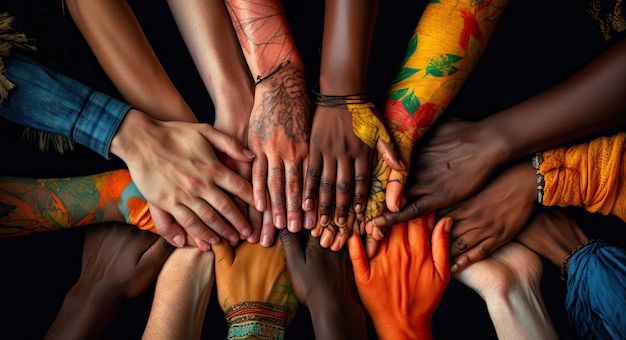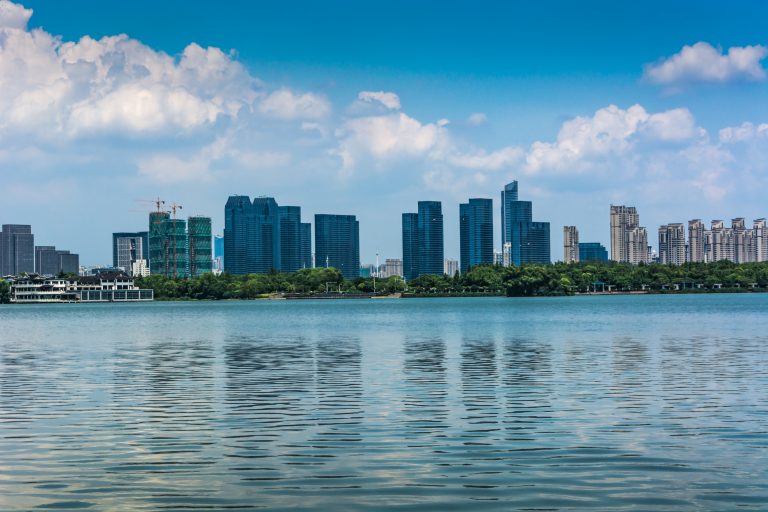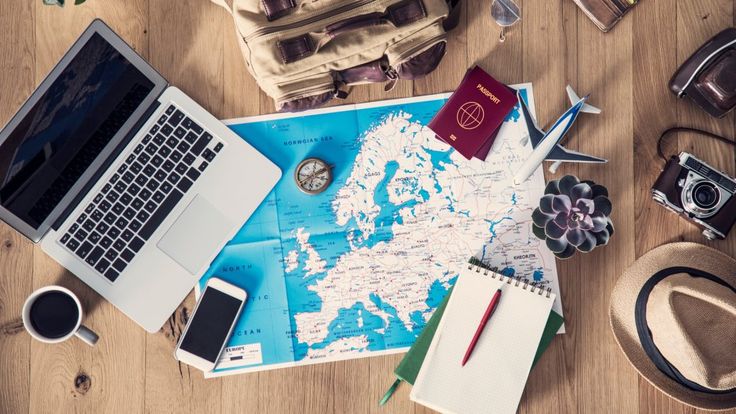Traveling the world to experience different cultures is one of the most enriching activities one can undertake. Festivals and events serve as windows into the soul of a culture, showcasing its history, traditions, and unique characteristics. The prospect of exploring global celebrations is particularly intriguing for a Nigerian, whose country is rich with its own diverse and vibrant festivals. This article delves into major festivals and events around the world, how to participate in them, and what to expect, providing a detailed guide to unique cultural experiences.
Major Festivals and Events Around the World
Carnival in Rio de Janeiro, Brazil
The Rio Carnival is arguably the most famous festival in the world. Held every year before Lent, it is a week-long extravaganza of parades, music, dancing, and elaborate costumes. The Sambadrome parade, featuring samba schools from across Rio, is the highlight.
How to Participate:
- Tickets: Purchase tickets for the Sambadrome parade in advance. They range from affordable grandstand seats to luxury box seats.
- Costumes: Join a samba school to participate in the parade. This requires purchasing a costume and attending rehearsals.
- Street Parties: Engage in “blocos,” which are street parties open to everyone. They are free and held throughout the city.
What to Expect:
- Vibrant Atmosphere: The streets are alive with music, dance, and color.
- Cultural Immersion: Experience Brazilian culture through samba, local foods, and interactions with locals.
- Crowds: Be prepared for massive crowds, so plan accordingly for safety and convenience.
Diwali in India
Diwali, the Festival of Lights, is a major Hindu festival celebrated across India and other parts of the world. It symbolizes the victory of light over darkness and good over evil. The festival lasts for five days, with the third day being the most significant.
How to Participate:
- Location: Celebrate in major cities like Delhi, Mumbai, or Jaipur for the most elaborate festivities.
- Accommodation: Book accommodation early as this is a peak travel time.
- Participation: Join local families or attend public celebrations in temples and community centers.
What to Expect:
- Lights and Fireworks: Homes and streets are decorated with lamps and fireworks light up the sky.
- Cultural Activities: Enjoy traditional dances, music, and performances.
- Cuisine: Savor a variety of sweets and traditional Indian dishes.
Oktoberfest in Munich, Germany
Oktoberfest is the world’s largest beer festival, held annually in Munich. It spans over two weeks from late September to the first weekend in October, drawing millions of visitors to celebrate Bavarian culture.
How to Participate:
- Reservations: Reserve a seat in one of the beer tents well in advance.
- Traditional Attire: Wear traditional Bavarian clothing—lederhosen for men and dirndls for women.
- Events: Participate in parades, concerts, and traditional games.
What to Expect:
- Beer: Enjoy a variety of beers brewed specifically for the festival.
- Food: Feast on traditional German foods like pretzels, sausages, and roast chicken.
- Entertainment: Experience live music, folk dances, and carnival rides.
Chinese New Year in China
Chinese New Year, also known as Spring Festival, is the most important traditional festival in China. Celebrations last for 15 days, culminating in the Lantern Festival. Each year is associated with a zodiac animal.
How to Participate:
- Location: Major cities like Beijing, Shanghai, and Hong Kong host grand celebrations.
- Preparation: Learn about the customs and traditions associated with the festival.
- Festivities: Participate in dragon and lion dances, parades, and temple fairs.
What to Expect:
- Decorations: Streets and homes are adorned with red lanterns, couplets, and paper cuttings.
- Family Gatherings: Experience the importance of family reunions and traditional meals.
- Fireworks: Enjoy spectacular fireworks displays that are believed to ward off evil spirits.
Mardi Gras in New Orleans, USA
Mardi Gras, or Fat Tuesday, is celebrated in New Orleans with parades, masquerade balls, and street parties. The festival marks the beginning of Lent and is known for its lively and flamboyant celebrations.
How to Participate:
- Parades: Attend the various parades organized by “krewes” (social clubs).
- Costumes: Wear costumes or masks to blend in with the festive atmosphere.
- Events: Join in the street parties and watch the float parades.
What to Expect:
- Beads and Trinkets: Catch beads and other trinkets thrown from parade floats.
- Music: Enjoy live jazz and other music genres that New Orleans is famous for.
- Cuisine: Savor Cajun and Creole dishes, including king cake, a traditional Mardi Gras dessert.
Holi in India
Holi, the Festival of Colors, is a Hindu festival celebrating the arrival of spring. It involves throwing colored powders, singing, dancing, and festive meals.
How to Participate:
- Location: Mathura and Vrindavan are popular places to celebrate Holi.
- Preparation: Wear white clothes that you don’t mind getting stained.
- Events: Participate in color-throwing events, music, and dance parties.
What to Expect:
- Colors: Get drenched in a riot of colors as people throw powders and water.
- Joyful Atmosphere: Experience the exuberance and camaraderie of the festival.
- Local Cuisine: Enjoy sweets like gujiya and traditional drinks like thandai.
Hanami in Japan
Hanami, or cherry blossom viewing, is a traditional Japanese practice of enjoying the transient beauty of cherry blossoms. The festival typically takes place in spring when the cherry trees are in full bloom.
How to Participate:
- Location: Visit famous hanami spots in Tokyo, Kyoto, or Nara.
- Timing: Check the cherry blossom forecast to plan your visit during peak bloom.
- Picnics: Join locals in having picnics under the cherry trees.
What to Expect:
- Scenic Beauty: Marvel at the breathtaking sight of cherry blossoms in full bloom.
- Cultural Activities: Participate in tea ceremonies, traditional music, and dance performances.
- Local Food: Enjoy seasonal delicacies like sakura mochi and cherry blossom-flavored snacks.
Day of the Dead in Mexico
Día de los Muertos, or Day of the Dead, is a Mexican festival that honors deceased loved ones. It is celebrated from October 31 to November 2 with vibrant altars, colorful decorations, and lively parades.
How to Participate:
- Location: Oaxaca and Mexico City are known for their grand celebrations.
- Preparation: Learn about the significance of the altars and traditional offerings.
- Festivities: Join in the parades, visit cemeteries, and participate in public events.
What to Expect:
- Altars: See intricately decorated altars with photos, candles, and marigolds.
- Costumes: Witness people dressed as skeletons and other traditional characters.
- Cuisine: Taste traditional foods like pan de muerto (bread of the dead) and sugar skulls.
La Tomatina in Buñol, Spain
La Tomatina is a unique festival held in the town of Buñol, Spain, where participants engage in a massive tomato fight. It takes place on the last Wednesday of August and is a fun-filled event drawing thousands of people.
How to Participate:
- Tickets: Purchase tickets in advance as the number of participants is limited.
- Clothing: Wear old clothes and goggles to protect your eyes.
- Rules: Follow the festival rules for safety and to ensure everyone has a good time.
What to Expect:
- Tomato Fight: Enjoy the exhilarating experience of throwing tomatoes at fellow participants.
- Community Spirit: Feel the camaraderie and fun as people from around the world join in.
- Cleanup: Participate in the post-fight cleanup and enjoy local festivities.
Saint Patrick’s Day in Ireland
Saint Patrick’s Day, celebrated on March 17th, is Ireland’s national holiday honoring its patron saint. It is marked by parades, music, dancing, and the wearing of green.
How to Participate:
- Location: Dublin hosts the largest celebrations, but every town in Ireland has its own festivities.
- Parades: Attend the colorful parades featuring floats, musicians, and dancers.
- Pubs: Visit local pubs to enjoy traditional Irish music and drinks.
What to Expect:
- Green Everywhere: See people dressed in green and iconic symbols like shamrocks.
- Festive Atmosphere: Experience the lively and welcoming spirit of the Irish.
- Music and Dance: Enjoy traditional Irish music, dance performances, and storytelling.
Bastille Day in France
Bastille Day, celebrated on July 14th, is France’s National Day commemorating the French Revolution. It features military parades, fireworks, and public celebrations.
How to Participate:
- Location: Paris hosts the grandest celebrations, including the famous parade on the Champs-Élysées.
- Events: Attend concerts, parties, and local festivities across the country.
- Fireworks: Watch the spectacular fireworks display at the Eiffel Tower.
What to Expect:
- Parades: Witness the military parade with soldiers, tanks, and aircraft.
- Cultural Activities: Enjoy French music, dances, and performances.
- Patriotic Spirit: Feel the national pride and festive atmosphere throughout the country.
Songkran in Thailand
Songkran, the Thai New Year, is celebrated from April 13 to 15 with water fights, parades, and religious ceremonies. It is a time for cleaning, renewal, and paying respects to elders.
How to Participate:
- Location: Chiang Mai, Bangkok, and Pattaya are known for their lively Songkran celebrations.
- Water Fights: Join in the water fights on the streets, armed with water guns and buckets.
- Cultural Events: Participate in traditional ceremonies and visit temples.
What to Expect:
- Water Everywhere: Be prepared to get wet as people splash water to symbolize purification.
- Festive Spirit: Experience the joy and fun of the water fights and street parties.
- Traditions: Observe traditional practices like making merit and building sand pagodas.
How to Participate and What to Expect
Preparing for the Journey
Research: Before attending any festival, conduct thorough research on its history, significance, and traditions. This will enhance your appreciation and understanding of the event.
Travel Arrangements: Book flights, accommodation, and local transportation well in advance, especially for popular festivals that attract large crowds.
Health and Safety: Ensure you have the necessary vaccinations and health precautions. Familiarize yourself with local safety guidelines and emergency contacts.
Cultural Sensitivity: Learn about the cultural norms and etiquettes of the host country. Respect local customs and traditions, and dress appropriately for the occasion.
Immersing in the Culture
Language: Learning a few basic phrases in the local language can go a long way in enhancing your experience and building rapport with locals.
Participation: Engage actively in the festival activities. Whether it’s dancing in a parade, cooking traditional dishes, or dressing in local attire, participation will deepen your cultural immersion.
Interaction: Interact with locals and fellow travelers. Sharing stories and experiences can provide valuable insights and create lasting memories.
Practical Tips
Packing: Pack appropriately for the festival. This may include traditional attire, comfortable shoes, and any necessary accessories.
Budgeting: Plan your budget to cover accommodation, food, transportation, and event tickets. Consider additional expenses for souvenirs and unexpected costs.
Documentation: Keep important documents like your passport, travel insurance, and festival tickets safe and easily accessible.
Health Precautions: Stay hydrated, use sunscreen, and take necessary precautions to avoid health issues during the festival.
Unique Cultural Experiences Through Festivals
Enhancing Cultural Understanding
Festivals provide a unique opportunity to understand and appreciate the cultural heritage of a community. By participating in these events, you can gain insights into the historical and social contexts that shape the traditions and practices of different cultures.
Building Global Connections
Attending international festivals fosters global connections and friendships. You’ll meet people from various backgrounds, creating a network of global citizens who share a passion for cultural exchange and understanding.
Personal Growth and Enrichment
Traveling for festivals not only broadens your cultural horizons but also contributes to personal growth. Experiencing different ways of life, adapting to new environments, and overcoming challenges enhance your resilience and adaptability.
Celebrating Diversity
Festivals celebrate the diversity of human culture. Each festival is a testament to the creativity, spirituality, and communal spirit of its people. By participating, you celebrate this diversity and contribute to the preservation of cultural heritage.
Experiencing global festivals as a Nigerian offers a unique perspective, enriched by your own cultural background. Whether it’s the vibrant parades of Rio Carnival, the luminous celebrations of Diwali, or the colorful revelry of Holi, each festival provides a gateway to understanding and appreciating the diverse cultures of the world. Through careful planning, active participation, and cultural sensitivity, you can create unforgettable experiences that not only broaden your horizons but also deepen your connection to the global community. So, pack your bags, embrace the adventure, and let the world’s festivals enrich your life with their boundless joy and cultural richness.





Leave a Comment